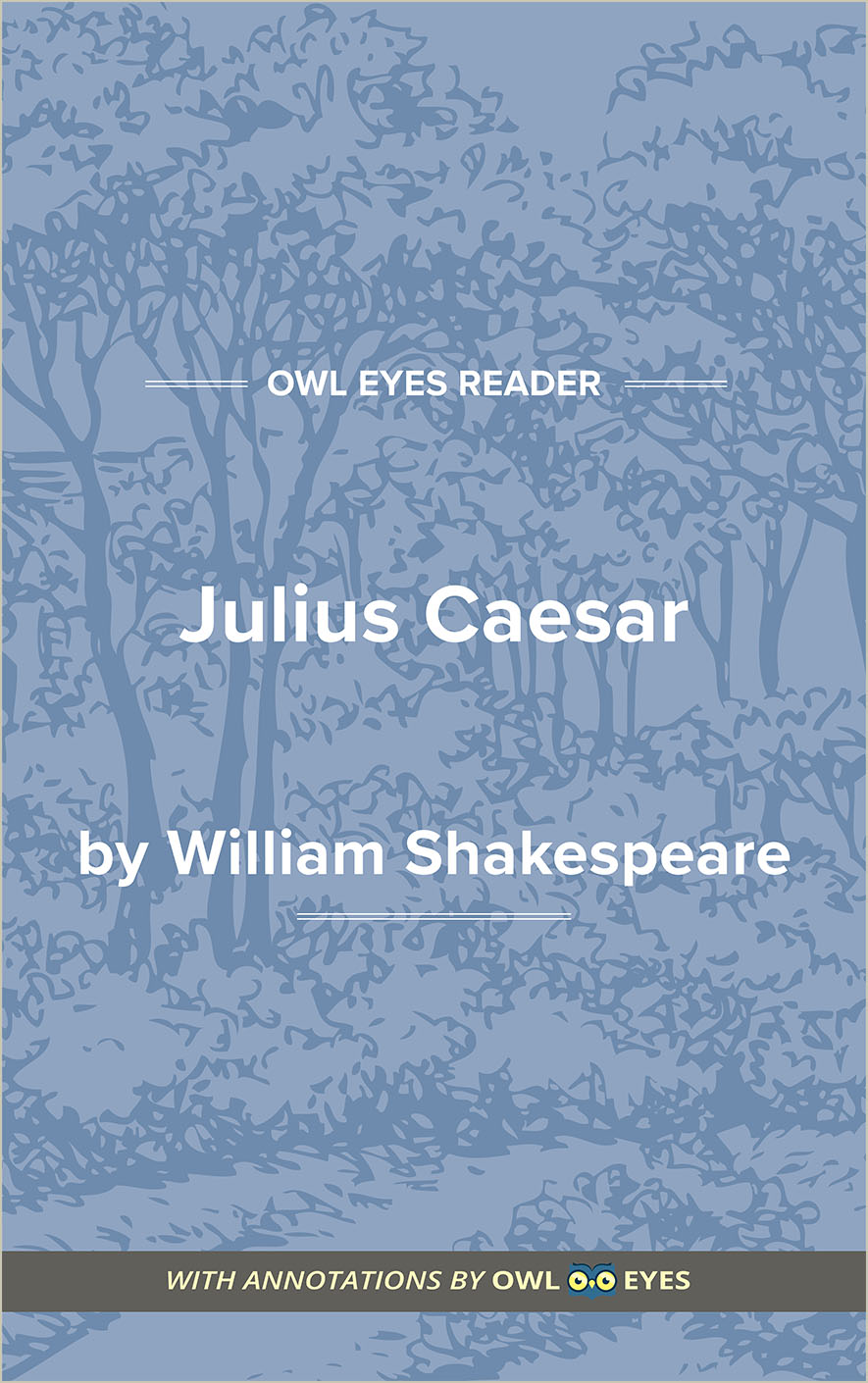Analysis Pages
Irony in Julius Caesar
Irony Examples in Julius Caesar:
Act II - Scene II
🔒"How foolish do your fears seem now, Calpurnia! I am ashamed I did yield to them...." See in text (Act II - Scene II)
Act III - Scene II
🔒"I am no orator, as Brutus is; But, as you know me all, a plain blunt man,..." See in text (Act III - Scene II)
"If I were disposed to stir Your hearts and minds to mutiny and rage,..." See in text (Act III - Scene II)
"For Brutus is an honorable man;(90) So are they all, all honorable men—..." See in text (Act III - Scene II)
Act IV - Scene II
🔒"Judge me, you gods! Wrong I mine enemies?(40) And, if not so, how should I wrong a brother?..." See in text (Act IV - Scene II)
Act IV - Scene III
🔒"Love, and be friends, as two such men should be;(145) For I have seen more years, I'm sure, than ye...." See in text (Act IV - Scene III)
"I am...." See in text (Act IV - Scene III)
Act V - Scene IV
🔒"There is so much that thou wilt kill me straight: Kill Brutus, and be honor'd in his death...." See in text (Act V - Scene IV)

